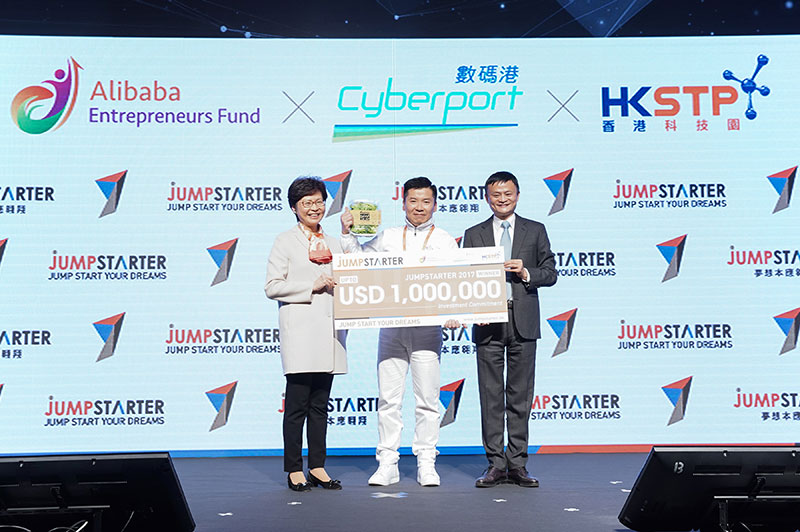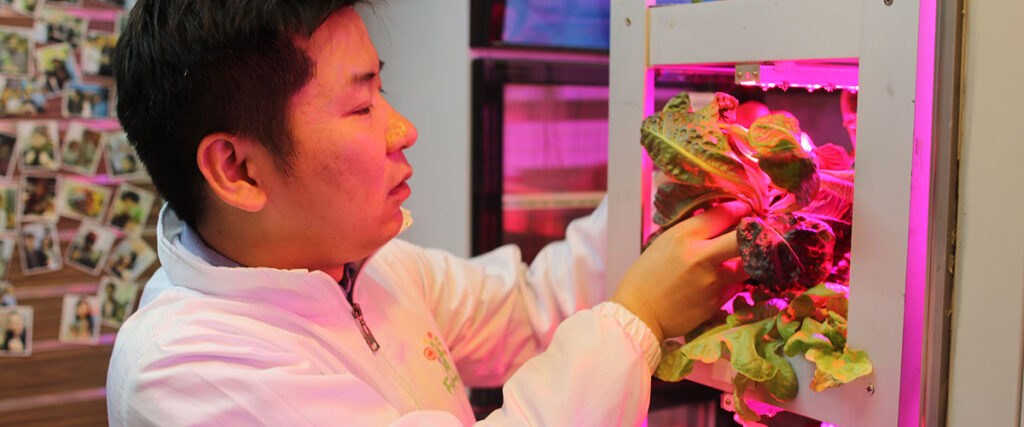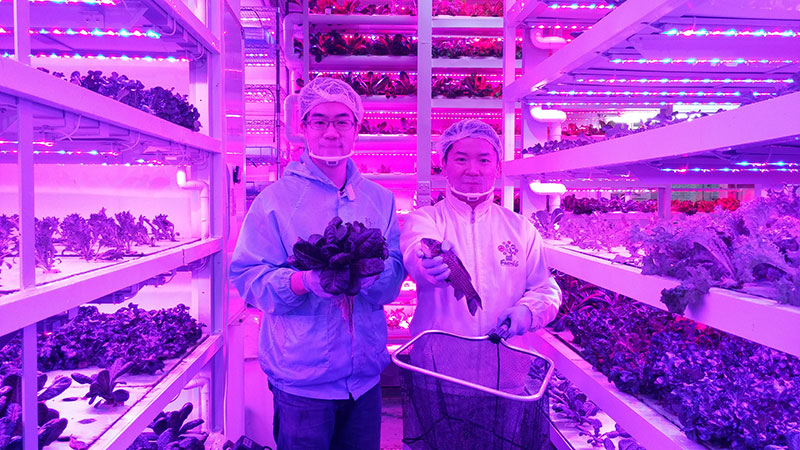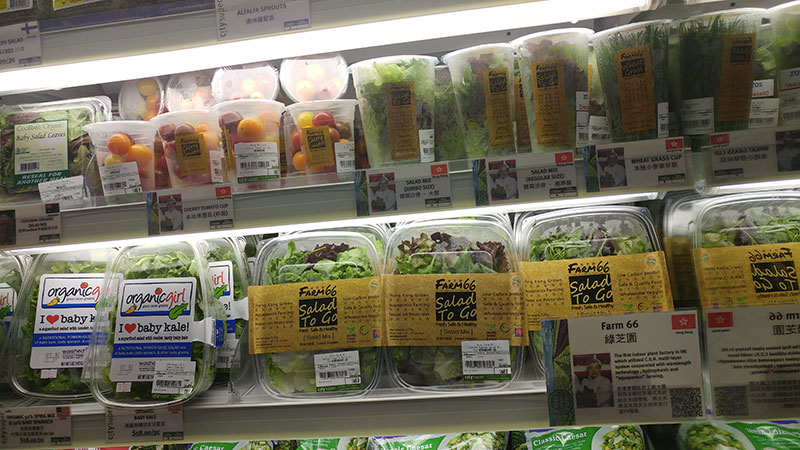Meet Gordon Tam, Founder of Farm66, the urban farming business that beat 600 others to win HK$1million from Alibaba’s Jumpstarter Fund in 2017.
Gordon Tam could be described as the very definition of the urban farmer. He grew up with parents who owned a food stall in the busy Mong Kok district of Hong Kong, learning about how food impacts health, how it is grown and how it reaches consumers in one of the most urban environments imaginable. He then graduated from Washington State University in Seattle with a degree in architecture in 1997 before working for an architecture firm back in Hong Kong, then trying his hand at online retail, and finally doing a stint in property development. His lightbulb moment when it came to sustainable, urban farming hit him at home. In his flat, he had an indoor pond, and he noticed one day how the plants that grew in it were healthier, and that the frog and fish faeces that surrounded them acted as an effective fertilizer, sparking his interest in aquaponics and setting him on a new path.
Today, Gordon says the beginnings of his path as an urban farmer stretch through all his life experiences. There was his time watching his parents manage their food stall in Mong Kok, and also his own personal experience of how eating chemically processed food caused him skin problems, often bringing him out in a rash. “Eczema is now a common problem in Hong Kong, although the last generation didn’t suffer from it so much because they had less chemically processed food. Most of the food we are eating now is processed.” His stint in Canada also opened his eyes to how farming practices could be different. “When I was in Washington, I explored agriculture. There were a lot of farms around and the place was famous for its mass production of Washington apples. I asked myself “How come they don’t have much manpower, but they still produce a lot?” It was so different to China, where they have a lot of workers on a small piece of land. Which was why I asked myself, “why don’t we use innovation and technology to start producing more?”

To answer that question, Gordon headed to Hong Kong Polytechnic to do a part-time Master’s Degree in Sustainable Urban Development, culminating in a thesis on aquaponics. “I sent my concept to my classmates and professor to review and they thought it was a good idea. At that time, nobody looked into hydroponics or aquaponics, especially in Hong Kong.” That thesis became the basis of Farm 66, and the business was launched with two friends in 2012 with the aim of growing sustainable and organic greens using the aquaponics method in an urban environment. Rather than mass-producing vegetables, Gordon and his colleagues wanted to show how it was possible to grow organic vegetables indoors that were safe to eat. “In the beginning, I couldn’t rely on my own knowledge so I had to ask others to join the team. I had traditional farmers join us, I guess you can call them city farmers now. I also have marketing employees, and people who do research. There are a lot of people who have joined me to achieve this dream. The timing was also perfect. If I had this idea 20 years ago, it wouldn’t have worked out. This is the perfect time to embark on this journey as we have access to the internet and people are supportive in doing research for us.”
The timing may have been perfect, but Gordon’s vision also clearly struck a chord, winning Alibaba’s Fundstarter campaign in 2017 by beating 600 applicants to become one of 3 that was awarded a grant of HKD 1million towards their future growth. Today, Farm 66 operates out of a large indoor space in Kwun Tong, with Gordon at the helm growing leaves and vegetables for sale via their website, acting as a mix between a farmer, a chemist and an architect. By using an indoor aquaponics system, the 3 researchers have experimented on plant growth under several controlled environments changing the UV-A lights, fertilizers, nutrients, pesticides and much more. “In most hydroponics methods they use chemicals, which causes health problems, so we try to use natural fertiliser. The problem with indoor farming is that we don’t have exposure to natural sunshine as well as a natural water source, so we have to adjust it by adding nutrients and managing the pH level.” He has also deployed his skills as an architect to battle another major problem – space, or rather lack of it, by introducing vertical farming, “where I stack plants on top of each other to save space and increase efficiency.”
Next up is growth. Farm66 is set to relocate to a bigger greenhouse in Tai Po in the New Territories with the blueprints set for March 2018. The company currently produces 7 tonnes of vegetables a year, but hopes to scale it up to 150 tonnes. Gordon wants to incorporate AI technology into the farming system to save on manpower. Supermarkets are beginning to call, and Farm66 needs to up its output. “We already talked with Starbucks and Marketplace,” he explains. “And if we finish our new factory in the Science Park in Tai Po then we can be ready for international export.” They also hope to open a location in China, as without one they cannot export there. It’s still unclear whether urban farming can thrive in Hong Kong without the support of the public, but Gordon has high aspirations for the future, hoping to secure urban farming methods that answer major questions when it comes to health, sustainability and space.
Details
Address: Unit B 11/F Chen Yip Industrial Building 5 Lai Yip Street, Kwun Tong, Hong Kong
Telephone: +852 2668 1068
www2.farm66.com
Related Articles
Farm Together: How Sino Group is Cultivating Hong Kong’s Urban Farming Scape






